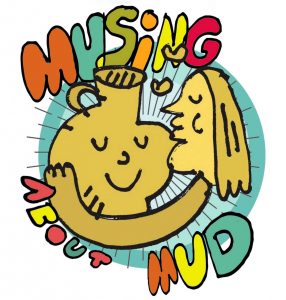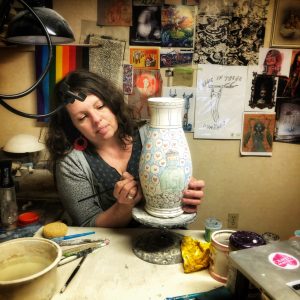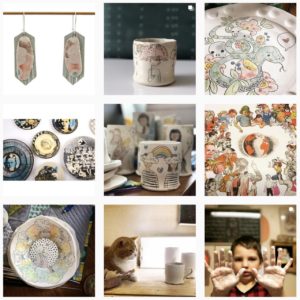The MA in Critical Craft Studies is a low-residency graduate program in craft history and theory. This full-time, four-semester/ five-residency program is the first of its kind in the US. Students and faculty meet for two weeks of lectures, workshops, seminars, readings, project work, and individual conferences each July and January. The two-year continuous program begins in July; all July residencies are held on the Warren Wilson campus, and January residencies are held in downtown Asheville with classes at The Center for Craft. Students return to campus for a fifth and final residency to present their final projects in a public colloquium, co-organized by Warren Wilson College and The Center for Craft. Students work individually and collaboratively during residencies the following semester terms. Each student spends 20-25 hours per week on readings, writing and research assignments, meetings with mentors in their place of residence or online, online faculty sessions, and group meetings. Coursework builds critical thinking, research methods, and experience with formats ranging from writing and podcasts to exhibitions and curriculum development. Final projects demonstrate applied knowledge in craft histories and theories, and may include: a journal-article length thesis; an exhibition with essays, programs and texts; curricular development with lectures; a scholarly conference with publication; a podcast series; Object Library development; or a series of short critical essays.
Faculty include leading theorists, historians, scholars and artists in the field of craft studies, art history, art, material culture, anthropology and other connected disciplines from the US and abroad; faculty work with students during residencies and online during the semester. Mentors offer additional connections to the field; mentors meet in person or online with students each semester to connect curriculum and communities. Residency faculty present their work in evening programs and paired conversations; these are free and open to the public.
Undergraduates at Warren Wilson College connect with graduate students and visiting faculty through Work Crews, visitors during the academic year, development of the Object Library, exhibition development, and craft history courses.
The Residency
Residency instruction includes a combination of lectures, discussions, readings, field trips, workshops, hands-on material labs, studio visits, as well as a mixture of individual and group work. Students will explore craft histories and theories from around the globe and a range of disciplines through readings and interaction with experts within and outside of craft studies. Coursework, concepts and research methods for each semester are introduced in the residencies and further explored through independent study, project assignments, online group discussions, and monthly meetings with individual mentors.
Research and Material Labs are designed to engage the Swannanoa/Asheville area as case studies. To complete Labs, students apply methods and approaches learned in their own hometowns. While the program includes a Material Lab, the emphasis is not on the acquisition and development of skills. Instead, students work on understanding materials and processes to improve their understanding of how things are made and to cultivate direct ways of investigating craft that brings process together with theory, history, and finished work.
All research findings are shared and engaged collectively to expand the field through collective exchange and knowledge building.








